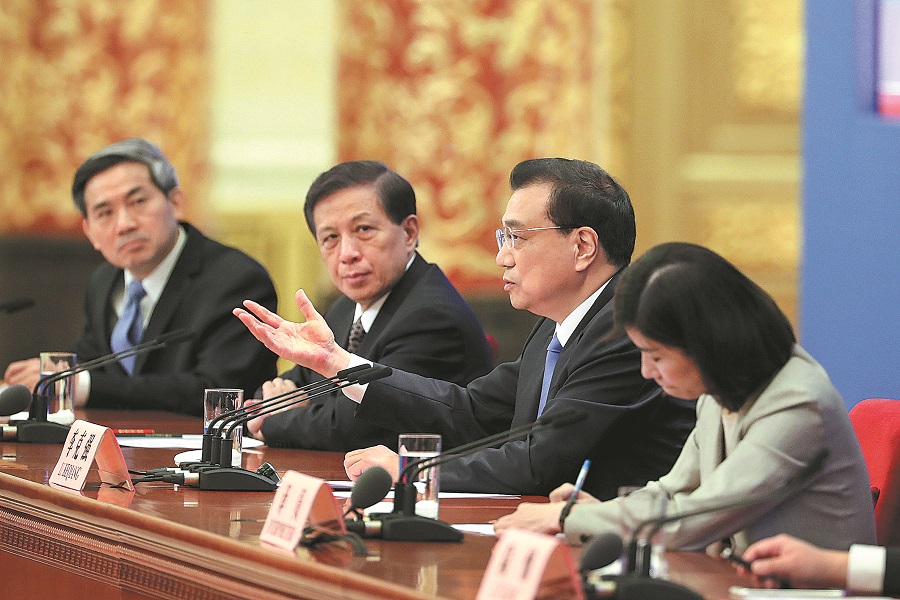Investment law to boost business environment


China will draft a series of laws and regulations to ensure smooth implementation of the newly approved Foreign Investment Law as the country seeks to further open up its economy to pursue high-quality development, Premier Li Keqiang said on Friday.
The Foreign Investment Law, adopted by the second session of the 13th National People’s Congress, the country’s top legislature, is designed to better protect the legitimate rights and interests of foreign investors in China, Li said at a news conference after the conclusion of the NPC session.
The law can be seen as a regulator of government behavior, ensuring it carries out its administrative functions in line with the law, he added.
The final text of the law was released on Friday. The government and officials are not allowed to force foreign investors to transfer their technologies, according to the law, which also stipulates strict protection of the intellectual property rights of foreign-invested firms.
“At the next stage, we will devise a series of relevant laws and regulations and documents to ensure the smooth implementation of the Foreign Investment Law,” Li said.
He also said China will continue to shorten its negative list, which defines areas in which foreign enterprises are not allowed to invest, making the country’s investment policy more predictable.
“We will continue to push our (economic) opening-up to foreign investors,” Li said.
As part of those efforts, the country will further improve its business environment.
In a World Bank report on the ease of doing business published in November, China’s rankings rose by 32 spots to the 46th place.
However, there remain some problems regarding the business environment in China, said Liu Junhai, a professor at the Business Law Center of Renmin University of China. “Although in many places, corporate registration procedures have been simplified, actually companies still need to go through various administrative approval procedures before they can start operating,” he said.
The premier said, “We will respond to appeals (from businesses) and further improve our business environment; as it improves, the market vitality and innovation of the society will be further unleashed.”
Analysts said the new investment law sends a positive signal to the world that China will better protect foreign investors in the country. “It showcases China’s will to continue to encourage and protect foreign investors, and I expect it to take more forceful measures in that direction,” Liu said.
According to Li Yong, deputy director-general of the investment promotion agency at the Ministry of Commerce, “The law will explicitly support multinationals in China in carrying out more independent innovation and market expansion.”
Bai Ming, a researcher at the Chinese Academy of International Trade and Economic Cooperation, said the new law will benefit foreign enterprises operating in China, and given their technology advantages and competitive marketing strategies, they may use the more neutral competitive environment to grab some of the market share previously held by domestic firms in some specific areas.
“A law-based business environment will be the best ‘soothing pill’ to assure foreign investors,” said Liu of Renmin University of China. “I believe that, supported by the new law, there will be more inflows of foreign capital.”
The Ministry of Commerce reported on Friday that foreign direct investment into China grew by 5.5 percent year-on-year to 147.11 billion yuan ($21.9 billion) in the first two months of this year.
The FDI that China received from nonfinancial sectors reached $21.69 billion, up 3 percent year-on-year, the ministry said.
Foreign direct investment from South Korea, the United States, and the European Union to China jumped 35.6 percent, 44.3 percent and 39.1 percent, respectively, in the first two months combined, compared with the same period of 2018.
Analysts said the figures reflect the unshaken confidence of foreign investors in the world’s second-largest economy.
Contact the writers at [email protected]
Zhou Lanxu and Xin Zhiming contributed to this story.




































